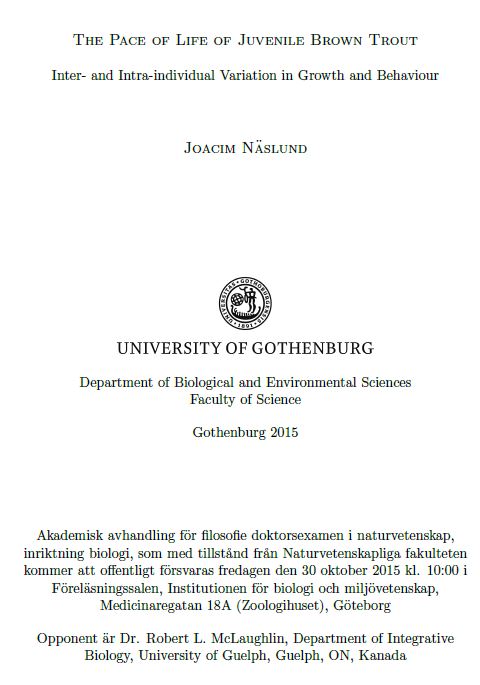Seminar: The pace of life of brown trout – linking growth and survival with animal personality
Posted by Daniel Nyqvist | EventsOn Tuesday, June 7, Joacim Näslund from the University of Gothenburg, will give a seminar titled ”The pace of life of brown trout: linking growth and survival with animal personality”.
In the abstract for the seminar, Joacim writes: “The Pace-of-Life syndrome (POLS) hypothesis suggests that different individuals within a species have different combinations of physiological, behavioural and life-history traits, which are linked together. Typically, researchers have classified individuals into a few, typically two, major categories: proactive (or bold) and reactive (or shy). Following the POLS proactive individuals are for instance more active and bold to support a faster metabolism and a higher growth rate, they have a lower stress response, and they typically have a higher risk of mortality. The reactive individuals have the opposite traits. In the seminar, I will discuss the POLS hypothesis in the light of several recent experiments on wild brown trout. I will show that the POLS is not as straight forward and intuitive as presented in conceptual papers on the topic. For instance, while several traits are linked together in a syndrome in the brown trout, the predictions from POLS are not confirmed by empirical data. As an example, during the early juvenile stage more active fish tend to have a higher probability of survival, despite a higher presumed exposure to predators and competitors. A potential explanation, relating to the behavioural ecology of the juvenile brown trout will be presented. Furthermore, I will show that the probability for survival for different POLS categories of trout likely changes during their ontogeny.”
The seminar will be given at 13:30 in room 5F416 on Karlstad University. Everyone is welcome to attend!




